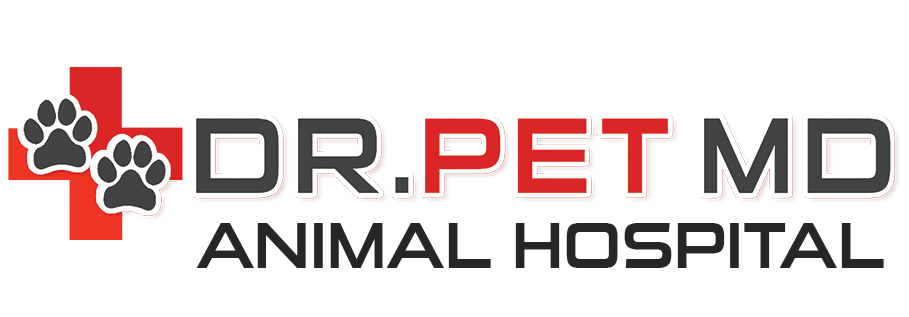
Dr Pet MD knows that it’s easy to spoil your pup with toys, beds and treats, but the best way to show your pet you care is by keeping him healthy. Make sure you’re feeding your pet the best dog food for his age, size and dietary needs. There’s a lot that goes into picking a nutritious, wholesome dog food – don’t you want the best for your pet? While it’s tempting to grab whatever’s on sale, not all dog food is made equal. Feeding your pet human food can lead to chronic conditions like obesity and pancreatitis. Find out the best dog food for your fur baby and pamper away on Spoil Your Dog Day without making them sick on people food!

Find the Best Dog Food Brands
According to the wise pet gurus at Healthy Paws Pet Insurance, many pet parents’ top priority is getting cheap dog food to fit their budget. While its true that pet supplies in general can be pricey, there are many ways to get healthy dog food at an affordable price. Many dog food brands or pet supply websites offer samples for free or only charge for shipping, or ask at your local pet store. This is also a great way to try out a new dog food if you have a picky pup. Coupons for dog food are also available online or in your local paper. Bulk food stores like Costco and WinCo also sell pet food for greater value, but be sure you’re choosing the best dog food, not just the best deal.
It might surprise you to know that some of the most popular dog food brands are also the worst-rated in 2015 by Consumer Affairs. A series of dog food recalls in the last few years have some pet parents suspicious of what is actually in their pup’s food. Dog food reviews from vets, pet lifestyle sites, and other pet parents can help you determine if a brand is the best dog food for you. We recommend checking out Reviews.com‘s analysis of over 2,000 formulas and 100 dog food brands.

The Association of American Food Control Officials (AAFCO) sets labeling requirements for dog food, but does not test or regulate what is actually in the products. Dog food labels must the brand and product name, intended species, quantity of food, nutrient analysis, and nutritional adequacy statement. However, dog food brands are not required to state the calories in the food, which leads many pet parents to unknowingly overfeed. Consult with your vet to find the best dog food for your pet and research any brands before stocking up.
Best Dog Food for Puppies
Picking a healthy dog food is the most important for puppies, whose growing bodies and minds need proper nutrition. A nutritional deficiency can affect puppies’ teeth, eyes, nails, fur and overall growth for life, making it essential to select the best puppy food possible. It’s a good idea to ask your vet for her recommendation, especially since you’ll be a regular at the office getting all your puppy’s vaccines.
Puppies begin eating solid food at about four weeks old, fully weaned from their mothers at roughly six weeks. The best puppy food will have the AAFCO’s seal of approval, meaning the food meets nutritional requirements for its life stage, puppyhood. Keep in mind that an AAFCO label does not say anything about the ingredients themselves, so make sure your puppy’s food meets these standards as well:
- The first listed ingredient is meat, not a byproduct or filler.
- It does not contain corn, soy, wheat, grain or flour, which have no nutritional value for dogs and can cause food allergies or intolerances.
- There are no added sugars, like beet pulp or corn syrup.
- Check the dog food brand for a history of recalls and research reviews for any side effects reported by pet parents.

Best Dry Dog Food
The same nutritional and ingredient standards apply to dry dog food for adult pets as well as puppies. There are many upsides to feeding your pet dry dog food, including convenience, cost and cleanliness. If you’re part of the 99 percent of pet parents who don’t brush their dog’s teeth regularly, dry dog food can help promote dental health by removing plaque and tartar. However, it’s still important to keep up your dog’s dental care with at least weekly brushing and yearly teeth examinations which we provide here at Dr Pet MD.
Many dry dog food brands use fancy descriptive like gourmet, premium, all-natural and holistic; these are totally meaningless and manufacturers are not required to back them up. The term “human grade” has also been also used, usually to indicate the food has been made using high-quality ingredients that are fit for human consumption.
However, the AAFCO prohibits dog food brands from using this phrase, as it’s currently unregulated. Organic dog food is also in a sort of legal limbo, as the USDA’s National Organic Program does not currently regulate any pet foods, although a task force is working on applying human standards to pet supplies.
Best Dog Food for Allergies
For pups with food intolerance and allergies, finding the best dog food that meets their medical and nutritional needs can be tricky. A pet parent’s best bet is the vet, who can recommend grain free dog foods or even prescription-strength dog food. Keep in mind that prescription dog food is not covered by pet insurance plans, even if it’s recommended by or purchased at a vet. There are several ingredients and factors associated with dog food allergies:
- Meat products, including beef, chicken, lamb and fish.
- Dairy products like eggs and other byproducts.
- Grains, soy and corn in dog food are a common allergen as well.
- Genetics can make a pet more prone to allergies, especially purebred dogs.
- Certain dog breeds are more likely to develop food allergies, including Labrador and Golden Retrievers, German Shepherds, Cocker Spaniels, and Dachshunds.
Dog food allergy symptoms include excessive itching and licking, a dull coat, diarrhea, gas, and shaking the head. Most dogs with this condition are allergic to more than one ingredient; an elimination diet is usually recommended by vets to determine the specific allergens. Once you’ve found the troublesome ingredient, you can select a meat, dairy or grain-free dog food that relives your pet’s symptoms.
It’s crucial to know that a dog food intolerance is different from an allergy, which causes an immune response. Dogs who are intolerant of certain foods simply have sensitive stomachs that can’t comfortably digest those ingredients. That’s not to say their symptoms are any less painful or serious, but it’s important to recognize dog food allergies and intolerances are separate medical conditions.
Best Dog Foods for Seniors
Dogs have different dietary needs at various life stages from puppyhood to adulthood to senior living. Although it varies from breed to breed, a dog is typically considered a “senior” when she reaches half of her life expectancy. For Great Danes and other large dog breeds, that can be as young as 4 years old, while a Rat Terrier has until 9 years old.
Senior dogs are typically not as active as they once were, requiring less protein and calories. It’s important to revisit the best dog food for your pet as he ages; continuing to feed the same formula and amount can lead to nutritional deficiencies or obesity. Stay away from bones or fatty treats, which also contribute to pet obesity; choose dog-approved vegetables and fruits like carrots, strawberries and sweet potatoes to serve as snacks.
Many senior dogs have medical conditions that require specialized diets. A dog with arthritis or hip dysplasia can benefit from dog foods containing glucosamine, which lubricates joints. Diabetic dog food products are specialized to delay digestion so blood sugar levels don’t dangerously spike. Other senior pets who struggle with constipation, kidney disease, or heart disease may require prescription dog food as well. Even the best dog foods can’t turn back time though, so it’s important to ensure your pup is still getting daily exercise, mental stimulation, and vet visits.

